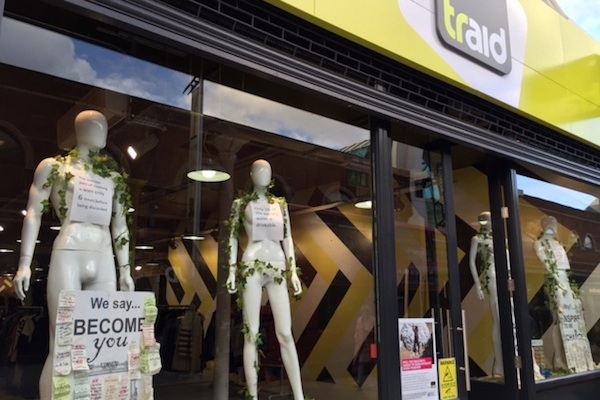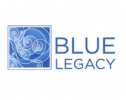Blog Post: Project Eye Cycled: How emotive narratives can create sustainable thinking
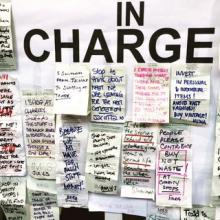
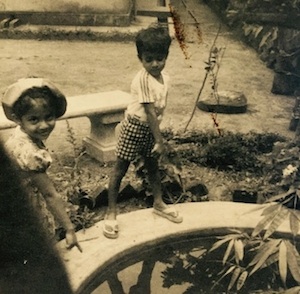 Growing up in Sri Lanka, an island which is known as the “pearl of the Indian ocean, with natural beauty ‘ceaseless to the human eye’, has made me acutely aware of the environmental impact of excessive human consumption, particularly as it relates to clothing. Tragically, many of these areas have often also become home to lower socio economic groups of people who seek to eek out their existence from the mounds of garbage. Watching this transformation of our former island paradise has had a deep impact on me.
Growing up in Sri Lanka, an island which is known as the “pearl of the Indian ocean, with natural beauty ‘ceaseless to the human eye’, has made me acutely aware of the environmental impact of excessive human consumption, particularly as it relates to clothing. Tragically, many of these areas have often also become home to lower socio economic groups of people who seek to eek out their existence from the mounds of garbage. Watching this transformation of our former island paradise has had a deep impact on me.
Historically, Sri Lanka has looked to the west for affirmation and direction and unknowingly emulated its throwaway fast fashion culture and lifestyle. This pattern is not exclusive to Sri Lanka however, and is in fact emerging all over the world. Our global fast service frenzy manifesting itself in a number of extremely negative ways; contributing to climate change, filling our oceans with plastic, poisoning our waterways, our food systems, and the air we breathe.
Having been forever moved by the changes I’ve seen in my community, and others around the world, I decided to devote my time and the attention of my career to helping to be part of the solution. Recognizing that education is the key to change-making I decided to collaborate with TRAID UK, an organization that helps to educate and fund the Free Trade Zone and General Workers Union (FTZ&GSEU) in Sri Lanka.
The work accomplished is quite amazing and the number of people who benefit is staggering. Of the unions' 19,000 members, around 10,000 are garment workers employed in export processing zones around the country. The union gives legal support and provides training to workers, lobbies for pay increases and the proper management of pension funds, and gets involved in cases of wrongful dismissal. It also champions the cause of women in particular, looking for innovative ways to make their lives easier, such the establishment of community laundries (http://www.traid.org.uk/traid-projects/)
My research into understanding fast-fashion addiction in the UK involved a process of peeling back many layers of society. Speaking to experts such as psychiatrists, psychologists and experts in the fields of sustainability, education, and communicating with my key target group (young adults aged between 16-27) has given me a great insight and knowledge on how and why the young consumer is frenziedly driven to invest in a “disposal lifestyle,” especially in the world of fashion.
My findings are that Western society is undergoing a shift in thinking and that the young, creative and dynamic customers I’ve been dealing with; yearns to give back to nature, and wants to look their best, but on their terms! They are often unwilling to conform to the rules of the “now,” which fascinates me!
The work accomplished is quite amazing and the number of people who benefit is staggering. Of the unions' 19,000 members, around 10,000 are garment workers employed in export processing zones around the country. The union gives legal support and provides training to workers, lobbies for pay increases and the proper management of pension funds, and gets involved in cases of wrongful dismissal. It also champions the cause of women in particular, looking for innovative ways to make their lives easier, such the establishment of community laundries (http://www.traid.org.uk/traid-projects/)
My research into understanding fast-fashion addiction in the UK involved a process of peeling back many layers of society. Speaking to experts such as psychiatrists, psychologists and experts in the fields of sustainability, education, and communicating with my key target group (young adults aged between 16-27) has given me a great insight and knowledge on how and why the young consumer is frenziedly driven to invest in a “disposal lifestyle,” especially in the world of fashion.
My findings are that Western society is undergoing a shift in thinking and that the young, creative and dynamic customers I’ve been dealing with; yearns to give back to nature, and wants to look their best, but on their terms! They are often unwilling to conform to the rules of the “now,” which fascinates me!
The 16-27 demographic is the key ingredient not only to sales for manufacturers and retailers, but also to the future preservation of the planet. Surprisingly, their perspective seems to be that no one seemed to care enough for them when they were shopping, or for what they thought was important when creating the designs!
One customer voiced their feelings saying; “I didn’t realise how much of a different buying second hand makes.” This education process is a wake up call to many of us to reduce the desire to buy more and examine our actions step by step consciously and carefully. Another stated “it’s a pity, retail happiness does not last for more than a minute as you walk out the store.” It is challenging yet important that we stand out of line and not conform to the normal patterns of consumption.
In my studies, one of the first steps I took to connect with the audience meant creating a visual representation of transparency and truth. I collected numerous receipts from clothing shops from individuals, then used them as a canvas to write their thoughts on. The undressed mannequins showcased posters that read ‘Do... Weave your story...- nurture the good -evolve better- inspire the best.’
The receipts were handed out and customers eagerly engaged and wrote what they felt sustainability meant to them personally and how to act and think more sustainably as a community. They were displayed in the shop windows at TRAID for many weeks and the curiosity and the enthusiasm of the audience grew as the project evolved.
The youth who have been voicing their thoughts are mostly strong-willed and are able to express themselves to encourage their peers. There was also a group of people who did not feel the need to contribute, possibly due to lack of knowledge, their socio-economic backgrounds, or fear of some unknown impact.
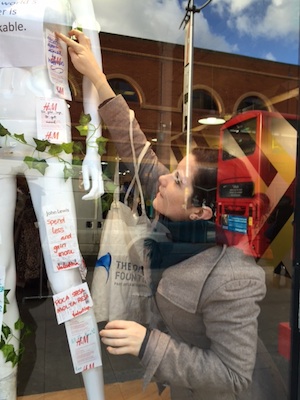 While I was conducting the research I displayed facts such as it takes almost 11,000 litres of water to make a pair of jeans, 2700 litres for one cotton shirt, and only 1% of the world’s water is drinkable. This was the first and strongest method of getting the attention of passers-by. They were shocked and dismayed that these facts and figures were even possible. But social conformity comes into play.
While I was conducting the research I displayed facts such as it takes almost 11,000 litres of water to make a pair of jeans, 2700 litres for one cotton shirt, and only 1% of the world’s water is drinkable. This was the first and strongest method of getting the attention of passers-by. They were shocked and dismayed that these facts and figures were even possible. But social conformity comes into play.
It was also very interesting to spot the patterns forming between the customers, how they were beginning to weave a common thread through various languages, cultures and backgrounds. It was an emotive journey expressing itself through words and actions. This thinking is confirmed by Psychosocial theories of emotion (Averill,1980:De Rivera,1984,Mandler 1982)”Emotion is based on social interaction(not automatic arousal)..in fact emotion is viewed as emotional relationships. Because “we are always in some emotional relationship with others.”
Project Eye Cycled aims to create shifts in attitudes and behaviour and promote a unique style of thinking, opposed to how consumers are told to look, dress and feel like in today’s disposable world of fashion. In turn, this helps the ecosystem to cope with its overload of emissions in to the air, landfill, and poisoning of our water.
One customer voiced their feelings saying; “I didn’t realise how much of a different buying second hand makes.” This education process is a wake up call to many of us to reduce the desire to buy more and examine our actions step by step consciously and carefully. Another stated “it’s a pity, retail happiness does not last for more than a minute as you walk out the store.” It is challenging yet important that we stand out of line and not conform to the normal patterns of consumption.
In my studies, one of the first steps I took to connect with the audience meant creating a visual representation of transparency and truth. I collected numerous receipts from clothing shops from individuals, then used them as a canvas to write their thoughts on. The undressed mannequins showcased posters that read ‘Do... Weave your story...- nurture the good -evolve better- inspire the best.’
The receipts were handed out and customers eagerly engaged and wrote what they felt sustainability meant to them personally and how to act and think more sustainably as a community. They were displayed in the shop windows at TRAID for many weeks and the curiosity and the enthusiasm of the audience grew as the project evolved.
The youth who have been voicing their thoughts are mostly strong-willed and are able to express themselves to encourage their peers. There was also a group of people who did not feel the need to contribute, possibly due to lack of knowledge, their socio-economic backgrounds, or fear of some unknown impact.
 While I was conducting the research I displayed facts such as it takes almost 11,000 litres of water to make a pair of jeans, 2700 litres for one cotton shirt, and only 1% of the world’s water is drinkable. This was the first and strongest method of getting the attention of passers-by. They were shocked and dismayed that these facts and figures were even possible. But social conformity comes into play.
While I was conducting the research I displayed facts such as it takes almost 11,000 litres of water to make a pair of jeans, 2700 litres for one cotton shirt, and only 1% of the world’s water is drinkable. This was the first and strongest method of getting the attention of passers-by. They were shocked and dismayed that these facts and figures were even possible. But social conformity comes into play. It was also very interesting to spot the patterns forming between the customers, how they were beginning to weave a common thread through various languages, cultures and backgrounds. It was an emotive journey expressing itself through words and actions. This thinking is confirmed by Psychosocial theories of emotion (Averill,1980:De Rivera,1984,Mandler 1982)”Emotion is based on social interaction(not automatic arousal)..in fact emotion is viewed as emotional relationships. Because “we are always in some emotional relationship with others.”
Project Eye Cycled aims to create shifts in attitudes and behaviour and promote a unique style of thinking, opposed to how consumers are told to look, dress and feel like in today’s disposable world of fashion. In turn, this helps the ecosystem to cope with its overload of emissions in to the air, landfill, and poisoning of our water.
According to Dr. Thomas Gilovich, Psychology professor at Cornell University "Our experiences are a bigger part of ourselves than our material goods, You can really like your material stuff. You can even think that part of your identity is connected to those things, but nonetheless they remain separate from you. In contrast, your experiences really are part of you. We are the sum total of our experiences."
Through the numerous collections of thoughts, videos and voices gathered, the narratives tell of personal journeys that echo universally. It was very intriguing to have discovered the conflict and emotional bearing that the media has on individuals. These various narratives were displayed to the public through shop windows such as TRAID to encourage consumers to question their habits, and most importantly - for each of us to modify our behaviour.
Rochelle Motha
Freelance Artist & Designer
Rochelle Motha is a freelance artist and graphics designer. She worked as an art director in Sri Lanka and a magazine designer in London, after graduating from Fashion (Dip) Colombo Sri Lanka, Fine Art (BA) from Srishti Bangalore, India. She is currently studying MA Applied Imagination in the Creative Industries at UAL Central St Martins. Her research looked at target group between the ages of 17-26, customers and passers-by of TRAID.org.uk. Her work was also presented at TRAID, for Fashion revolution: fashionrevolution.org
For more information visit:
www.artinfiniti.co.uk
Facebook-project eye cycled
Through the numerous collections of thoughts, videos and voices gathered, the narratives tell of personal journeys that echo universally. It was very intriguing to have discovered the conflict and emotional bearing that the media has on individuals. These various narratives were displayed to the public through shop windows such as TRAID to encourage consumers to question their habits, and most importantly - for each of us to modify our behaviour.
Rochelle Motha
Freelance Artist & Designer
Rochelle Motha is a freelance artist and graphics designer. She worked as an art director in Sri Lanka and a magazine designer in London, after graduating from Fashion (Dip) Colombo Sri Lanka, Fine Art (BA) from Srishti Bangalore, India. She is currently studying MA Applied Imagination in the Creative Industries at UAL Central St Martins. Her research looked at target group between the ages of 17-26, customers and passers-by of TRAID.org.uk. Her work was also presented at TRAID, for Fashion revolution: fashionrevolution.org
For more information visit:
www.artinfiniti.co.uk
Facebook-project eye cycled
Category:







